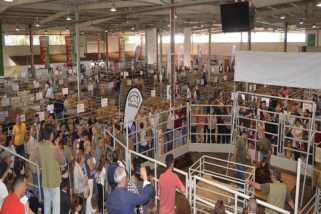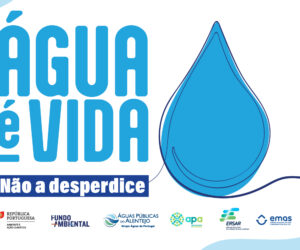Spanish inject 3,5 millions to ensure this year's campaign and get 85% of the grape producer without Grainha. Recovery plan provides for haircut or stretching of bank debt maturities.
The Vale da Rosa Group's recovery plan provides for a debt forgiveness, at least, eight million euros to take over by banks. This is the effort to ensure the future of the grape producer without Grainha founded by Commander António Silvestre Ferreira, over 200 workers, and that will pass to the hands of Iberian Premium Fruits and Sanlucar Fruits. The Spaniards injected more than 3,5 million to ensure the grape campaign of 2025 And they can stay with 85% Business, If there is a led by the creditors.
At stake are, as a matter of fact, Three special recovery plans (PER): of the Vale da Rosa Society, Uval and the manager himself on an individual name António Silvestre Ferreira - the last two produce and provide the bought grape, processed and marketed by the first. These per have just been presented in court, and to which Eco had access, with the decision now in the hands of banks, the largest creditors of the group.
The Exhibition of Banking to Vale da Rosa, based in Ferreira do Alentejo, Overcomes the 26 million, This is not counting on common debt under condition (which includes responsibility for rates provided among group companies and that will not be triggered in case of approval of the Plan). BPI, Agricultural and BCP credit leads the list of largest credit banks.
The plan undergoes a financial restructuring that gives banks two options (and a third, insolvency, But with more serious consequences): or a forgiveness of the debt that will reach a value of not less than eight million euros, with the remnant to be settled in the three months after the approval of the plan; or stretching of reimbursement deadlines for a decade or more with the full payment of debts.
In case of insolvency of the group, refers to the plans, banks would receive substantially less due to the devaluation of real estate assets. In the case of common credits, for example, would recover no longer than 20% debt.
Joint-venture Spanish is 85%
Beyond financial restructuring, the plan provides for a corporate reorganization of the entire group. Right away with the entry of two new shareholders: to Iberian Premium Fruits and Sanlucar Fruits, two names that the Express I had advanced last month, having realized that banks welcome the fact that they are two investors with experience in the sector.
It was with these two Spanish companies that Vale da Rosa celebrated, in March, two financing contracts in the global value of 3,535 million, Fresh money aimed at âsupporting operating costsâ until June and ensuring that this year's grape campaign runs without embarrassment.
The perspective is that from July, With the start of sales, âThe activity of the group is surplus again, failing to need inputs Capital Additional â, according to the plan.
With the approval of the per, This debt will be converted into capital, in an operation that will make 85% of the group pass to the hands of joint-venture Spanish, with the current partners - António Silvestre Ferreira and the four children - to remain in the shareholder structure with 15% Business.
The plan underlines that the risks of succession are in this way (the commendator and founder of the group has 76 years), besides providing the group with more professional management and its appreciation.
Jerónimo Martins and Lidl âcrush
For this picture of huge difficulties, the group, over 200 workers, lists several âstructural and conjuncturalâ factors that gave rise to this crisis.
On the one hand, It recognizes that the growth and modernization strategy carried out in recent years for the reconversion of vineyards and introduction of new grape varieties has resulted in a âsignificant increaseâ of group indebtedness, which was fatal to a seasonal business like this.
But there were other âunexpectedâ factors that âintensified the difficulties in managing the treasuryâ, second point. Namely, regrets the loss of important contracts over the past year with large commercial surfaces such as âPingo Doce, Lidl and Jerónimo Martins Polska â.
âThese customers represented about 33% of business volume in 2023 And its loss contributed to a decrease in the order of eight million euros in the volume of business in 2024 â, Explain.
While losing these great customers, Vale da Rosa has also been confronted with the entry into the national market of competing products at lower prices, which led to lower prices and reduce margins.
âThe high indebtedness, The breaking of recipes, the costs associated with recent investments and the seasonality of the sector compromised the capacity to generate liquidity, essential for supporting financial operations and commitments â, summarize the debtors.
News: eco.sapo
Photo: DR

























